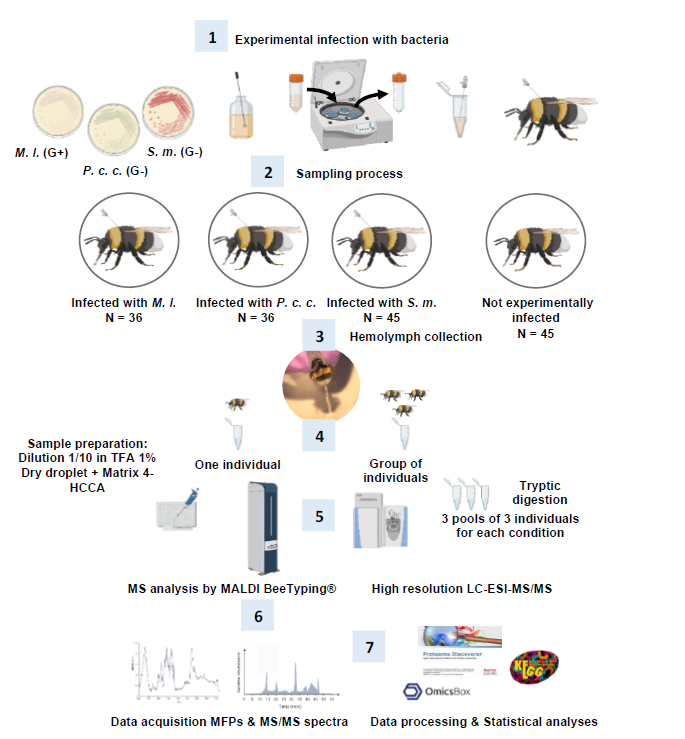pan-european assessment, monitoring, and mitigation of stressors on the health of bees
New PoshBee study paves the way for diagnosis/prognosis tools in response to environmental stress
A recent study published in the International Journal of Molecular Sciences has developed molecular signatures reflecting the health status of the buff-tailed bumblebee – Bombus terrestris. The study aimed to better understand the impact of environmental stressors on the health of pollinators, so crucial for maintaining biodiversity in ecosystems and agriculture.

Omics workflow (seven steps from experimental infection to data processing) applied to Bombus terrestris.
The researchers used MALDI BeeTyping® to analyse the hemolymph, or "blood," of bumblebees infected with different types of bacteria. They found that the bees reacted in a specific way to the varying bacterial attacks, with changes in the molecular composition of their hemolymph allowing researchers to distinguish between "healthy" individuals (not experimentally infected) and experimentally infected ones. The study also detected and quantified several immunity peptides and the chymotrypsin inhibitor AMCI from B. terrestris that could serve as effective markers for assessing the health status of bumblebees from a simple blood test using the innovative technique MALDI BeeTyping®.
With further research, these molecular signatures could provide valuable insights into the impact of environmental stressors on pollinator health and help to improve our ability to protect these vital species.
Read the full paper here.